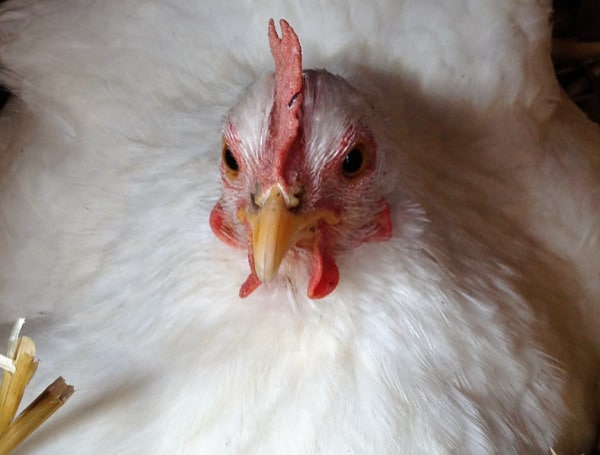Raising backyard poultry has become an increasingly popular hobby, allowing families to enjoy the benefits of fresh eggs and the joys of caring for feathered companions.
However, this growing trend has also brought to light a concerning public health issue – the risk of Salmonella outbreaks linked to these backyard flocks. In recent years, the Centers for Disease Control and Prevention (CDC) have sounded the alarm, urging both poultry owners and retailers to take proactive measures to mitigate the spread of this dangerous bacterial infection.
Read: Florida DOH-Hillsborough Issues Water Quality Health Advisory For Bahia Beach
Salmonella is a type of bacteria that can be carried by seemingly healthy backyard poultry, including chickens, ducks, and other fowl. These germs can easily spread to the surrounding environment, contaminating anything the birds come into contact with. Even if the birds appear clean and well-cared for, they can still harbor Salmonella, posing a significant threat to human health.
Salmonella infection typically manifests with symptoms such as diarrhea, fever, and abdominal cramps, often appearing within 6 hours to 6 days after exposure to the bacteria. While most people recover without medical intervention, certain populations, such as young children, older adults, and those with weakened immune systems, may experience more severe illnesses that require hospitalization.
The primary mode of Salmonella transmission is through direct contact with backyard poultry, their eggs, or their immediate environment. Individuals can inadvertently ingest the bacteria by touching their mouths, food, or other items that have been contaminated.
The CDC’s recent investigations have revealed a concerning trend of Salmonella outbreaks linked to backyard poultry flocks across the United States. As of May 2024, the agency has reported 109 confirmed cases of Salmonella infection from 29 different states, with Missouri, Texas, and Oklahoma being the most heavily impacted regions.
Read: Florida Home Health Services Agency Owner And Parent Of Disabled Child Charged In Medicaid Fraud
While no fatalities have been reported, the outbreak has resulted in 33 hospitalizations, underscoring the seriousness of the issue. Particularly alarming is the fact that 43% of those infected are children under the age of 5, a population that is more susceptible to severe Salmonella-related illnesses.
To mitigate the risk of Salmonella outbreaks, the CDC has issued a set of recommendations for backyard poultry owners. These guidelines emphasize the importance of proper hygiene and responsible handling practices to protect both the flock and the surrounding community.
The primary preventive measure is thorough and immediate handwashing with soap and water after any interaction with backyard poultry, their eggs, or their living environment. This simple yet effective step helps to remove Salmonella bacteria and prevent their spread.
Young children are particularly vulnerable to Salmonella infections, and the CDC strongly advises that they be closely supervised when around backyard poultry. Parents and caregivers should ensure that children do not engage in behaviors that could increase their risk of exposure, such as kissing or snuggling the birds.
Read: Florida Spine Doctor Explains How Insurance Bureaucracy Slows Critical Patient Care
Backyard poultry owners should strive to keep their flocks in a clean and well-maintained environment. This includes regularly cleaning and disinfecting the areas where the birds live and roam, as well as properly disposing of any waste or soiled materials.
Eggs laid by backyard poultry can also be a source of Salmonella contamination. Owners should handle eggs with care, refrigerating them promptly and avoiding the consumption of raw or undercooked eggs.
If individuals experience severe Salmonella-related symptoms, such as prolonged diarrhea, high fever, or extreme dehydration, they should seek immediate medical attention. Prompt diagnosis and treatment can help prevent the development of more serious complications.
The CDC’s guidelines also extend to retailers who sell backyard poultry, as they play a crucial role in mitigating the spread of Salmonella. These recommendations aim to ensure that both the birds and the customers are protected from potential health risks.
Retailers should source their backyard poultry from hatcheries that participate in the voluntary USDA-NPIP (National Poultry Improvement Plan) U.S. Salmonella Monitored Program. This program helps to certify that the flocks are regularly tested and monitored for Salmonella contamination.
Help support the Tampa Free Press by making any small donation by clicking here.
Android Users, Click To Download The Tampa Free Press App And Never Miss A Story. Follow Us On Facebook and Twitter. Sign up for our free newsletter.


